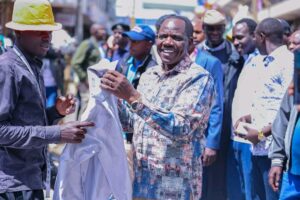Government Launches Nationwide Animal Vaccination Program to Boost Livestock Sector

The Kenyan government has announced an ambitious nationwide vaccination program aimed at safeguarding the health of the nation’s livestock. The initiative, which targets the vaccination of 22 million cattle and 50 million sheep and goats, is set to have a profound impact on the agricultural sector, particularly the livestock industry, which has significant potential for economic growth and job creation.
The announcement was welcomed by industry stakeholders, including Dr. Isaak Noor, the Chief Executive Officer of the Kenya Leather Development Council (KLDC). Dr. Noor praised the program, highlighting its vital role in enhancing animal health, protecting public health, and improving the efficiency of animal production. He noted that healthier animals not only contribute to a safer food supply but also reduce suffering, which is essential for sustainable livestock farming.
“This program is essential for the continued growth and success of our livestock industry,” said Dr. Noor. “Healthier animals are key to improving the quality of hides and skins, which are vital components of our leather industry. By ensuring the vaccination of our animals, we can improve the quality of our leather products, making them more competitive on the global market.”
The hides and skins industry is a key agricultural sub-sector in Kenya, with vast potential for commodity development and rural economic growth. The sector provides employment opportunities and plays a significant role in wealth creation, particularly in rural communities where livestock farming is a mainstay. Dr. Noor emphasized that the successful implementation of the vaccination program and adherence to best farming practices would be critical to maximizing the potential of this sector.
“The hides and skins value chain contributes significantly to Kenya’s economic growth. However, achieving success in this sector requires a commitment to ensuring the health of our livestock and the quality of the hides and skins they produce,” he said. “Through this vaccination initiative and by adopting best practices, we can enhance the global competitiveness of Kenyan leather products.”
The government’s initiative is expected to significantly reduce the risks associated with animal diseases, ensuring a more stable and productive livestock sector. With the increasing global demand for high-quality leather, Kenya’s livestock industry stands to benefit greatly from the enhanced health and productivity of its animals, further boosting the economy and creating more opportunities for rural development.
As the vaccination program progresses, stakeholders are optimistic that it will contribute to the long-term sustainability and profitability of Kenya’s livestock and leather industries.





